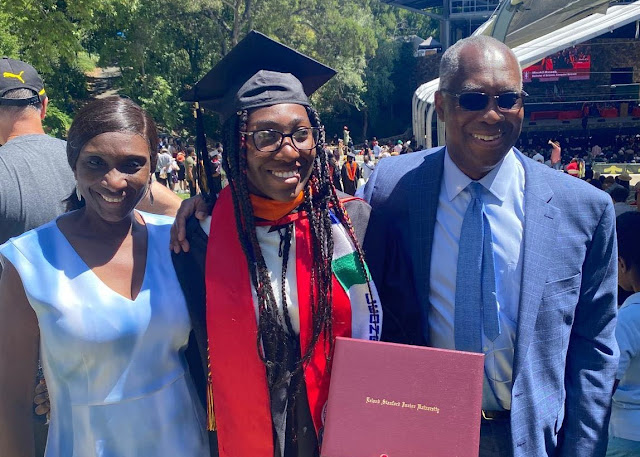People of the City: When all doors are closed
When all doors are closed
by Cyprian Ekwensi, excerpted from People of the City
And before Sango could answer: “We read all your dispatches in the Sensation. But were you not afraid? That was hot news! How was the rioting out there?”
Sango put down his box in a corner and flopped into a chair. “That's the first time I've relaxed in two weeks! Where are you going, all dressed up like this?”
“You've forgotten about the elections! Our band is playing for one of the parties. I don't care about
their politics, but they pay well. Don't you see how I've been running the band in your absence?”
“Very good indeed.” He yawned. “Well done! So I'm back with parties again. I thought we'd finished with parties as from last week. What's the use of all this nonsense when we are being led by the National Committee for Justice? I hope this election does not create a split. I'd hate to see the politicians split up once again.”
First Trumpet had his instrument under his arm and one foot on the doorstep.
“No … have no fear. They'll remain together, they won't split. You know how they act at election time. They make foolish promises, they abuse themselves. It's politics. Well! I must be off to Lugard Square; the band will be waiting.”
“Whom did you say you were playing for?”
“The S.G.N. Party.” He was already on the street.
Sango knew the S.G.N. (Self-Government-Now) Party as the one which claimed to represent the interests of the working man. Most of its members were people like Mr. Nekam of the Eastern Greens. They were fanatics in their cause, and strongly opposed to the R.P.—the Realization Party—which helped people “realize their dreams.” Sango wished Sam were here to help him unpack his suitcase. First Trumpet had gone without even asking him whether he had had a meal recently. It was not strictly his business, but it would have been comforting to hear. Sango set about having a bath and a change of clothing. When he returned to his room, he found Bayo siting in an armchair, a warm smile on his face.
“Sango! Ah-ah! You just flew away like that! This your job is terrible. But what have you been eating in place? Your skin looks so fresh!”
Sango's heart warmed. Now he knew he was really back.
“I have plenty of news for you, Sango. Just wait. A lot has happened. Do you know, I saw your gal—the one who went to jail.”
"Aina?” Sango was thrilled to hear her name, the very mention of it. In one reckless moment, he forgot the pain of Elina. When he saw that Bayo had observed his eagerness, he feigned anger. But Bayo smiled.
“I saw her on Beecroft Bridge, selling cigarettes.”
“Oh?”
“But Sango, you don't sound interested. What's wrong?” You're not like your old self. Or is the suffering you saw there still with you? Forget it, man!”
'I'm my old self, Bayo. “It's nothing.”
He was putting on his cleanest shirt and selecting his best tie. Why, he asked himself? Why? Must he impress an ex-jailbird like Aina? “You have no feeling,” she had once told him.
“I don't blame you anyway,” said Bayo. “Those policeman are wicked. Shooting down their own brothers like that! Just because they wanted to be paid extra money. They'll not die well!”
He rambled on in his usual manner and soon the hard-luck story came up. “I, too, have changed. D'you know … Don't you see how thin I have become?”
Sango looked at him. If there was anything thin about Bayo that evening it was the color of his tie. His hair was permed as usual and the nylon ankle-socks that peeped out under the narrow trousers were ablaze with color. The basket shoes had three tones.
“Sango, I've suffered too much in this world, and now I have made a decision. I made it when you were away, because I had no other friends in the world. Look, I said to myself. Bayo, everybody is becoming something. Our country is fighting for self-government. Our boys and girls are going to Britain and America, they are learning new things to make our country greater. I must become a serious man and move with the times.”
Sango looked at the face of his faithful friend. “Do you really mean that, Bayo?”
Bayo sat forward with a show of indignation. “Only the other day a lady bought me a new suit and gave me ten pounds on top. She is about forty-five, very wealthy, but no child. She has married thrice, but no children. She wanted me to fulfil her desire, but I refused.
“True, you mean that?”
It was certainly surprising for Bayo to act in this manner. Something must have happened. Sango was quite sure now. It could be the encounter with the police; but something must have happened. Bayo was restless, unable to sit still.
Cyprian Ekwensi (September 26, 1921–November 4, 2007) wrote hundreds of short stories, radio and television scripts, and several dozen novels. His 1954 People of the City was the first book by a Nigerian to garner international attention. In 1968, he received the Dag Hammarskjöld International Prize in Literature. In 2006, he became a fellow of the Nigerian Academy of Letters. Ekwensi died on 4 November 2007.
Excerpted from People of the City by Cyprian Ekwensi. Copyright © 1954 by Cyprian Ekwensi. Reprinted with permission by Fawcett World Library




Comments
Post a Comment